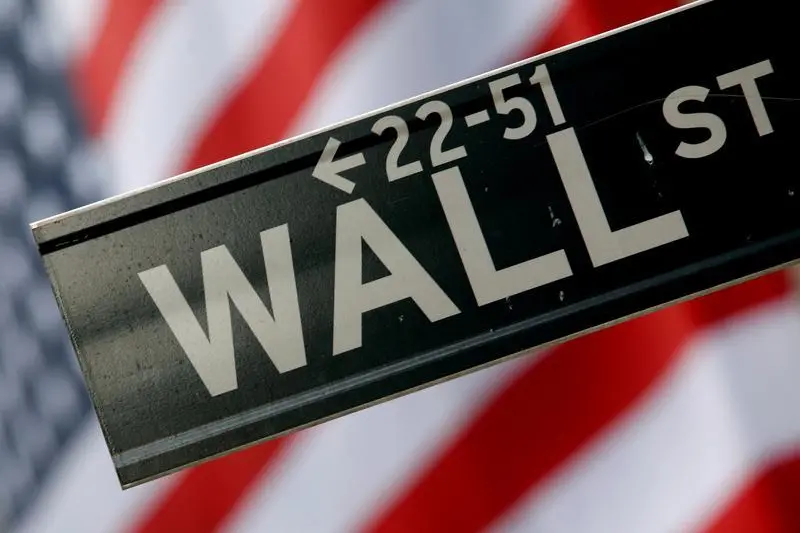PHOTO
LONDON- Risk-aversion ruled on Monday as a surge in worldwide coronavirus cases sank bond yields and left stocks facing their longest losing streak since the pandemic first hit global markets 18 months ago.
Europe's STOXX 600 slid over 2% in its worst session in seven months; London's FTSE fell a similar amount to the lowest since mid-May as Britain's "freedom day" lifting of COVID-19 restrictions was overshadowed by its fully vaccinated health minister contracting the virus.
The Dow Jones Industrial Average dropped 1.4% in early U.S. trading, with the S&P 500 and the Nasdaq Composite nearly matching those falls.
Meanwhile safe-haven government bonds enjoyed healthy gains, with U.S. 10-year Treasury yields sliding to new five-month lows while the dollar climbed to a 3-1/2 month high.
"The big concern for the market is whether we are going to see a slowdown in the global economic recovery, and this could be the overriding force which results in a bad period for equities in the weeks ahead," said Russ Mould, investment director at brokerage AJ Bell.
In Asia, Japan's Nikkei and Hong Kong's Hang Seng HSI dropped 1.3% overnight. Cases hit an 11-month high at the weekend in Singapore, Thailand had its highest single-day increase since the pandemic began and Sydney's construction workers were told to down tools after cases rose there as well.
Markets were fretting over whether broader lockdowns might be needed again and a slowdown in the world's No. 2 economy China, meaning a recent surge in commodity prices could be peaking.
Natwest's Global Head of Desk Strategy, John Briggs, said rising COVID-19 cases would focus markets' mind on which countries had the highest vaccination rates, their appetite for social restrictions and their fiscal appetite.
"The U.S. comes out on top of all these," Briggs added. "We are in a period of renewed U.S. exceptionalism ... So all this is bullish for the USD."
In Europe, coronavirus angst saw travel and leisure stocks fall to their lowest level of the year. Shares of cruiseship operator Carnival, airlines easyJet and British Airways-owner IAG, and the UK's Restaurant Group and Cineworld cinema chain all fell between 5%-6%.
It wasn't just COVID-19 dampening the mood. China's supersized tech trio Baidu, Alibaba and Tencent had sank 2.5%-3% overnight after a Shanghai court at the weekend posted a list of "typical unfair competition cases".
PERMANENTLY CHANGED
Oil prices slid about 4% after the OPEC group of producing nations overcame a recent spat and agreed to boost output in a hastily arranged meeting on Sunday.
Brent crude was down $2.80 at a more than six-week low of $70.75 a barrel. U.S. crude fell a similar amount to $68.84 a barrel.
Global economic growth is beginning to show signs of fatigue as many countries, struggle to curb the highly contagious Delta variant of the coronavirus.
Investors are also worried about the spectre of elevated inflation, which the market has long feared.
Economists at Bank of America downgraded their forecast for U.S. economic growth this year to 6.5%, from 7% previously.
In bond markets, the move to safe-haven assets meant further falls in yields. Germany's 10-year bond yield hit its lowest level since late March at -0.351% ahead of an ECB meeting this week. U.S. 10-year Treasury yields slipped to 1.21% and have fallen for 11 of the last 15 trading sessions.
The dollar was also riding high as risk currencies came under pressure. An index measuring the dollar's value against a basket of major currencies briefly rose to as high as 93.041, its highest since early April.
But the dollar failed to make any headway against the yen, with the currency pair trading below the 110 yen per dollar mark at 109.10, leaving the yen almost 0.9% higher on the day.
Britain's sterling hit a three-month low against the dollar at $1.3703 GBP/ after its health minister Sajid Javid had tested positive for COVID-19. That forced Prime Minister Boris Johnson and finance minister Rishi Sunak to quarantine on Sunday.
"Despite rising vaccination rates, a return to pre-corona normality seems questionable," Ulrich Leuchtmann, head of FX and commodity research at Commerzbank, wrote in a research note.
(Additional reporting by Karin Strohecker; Editing by Edmund Blair and Timothy Heritage) ((marc.jones@thomsonreuters.com; +44 (0)20 7513 4042; Reuters Messaging: marc.jones.thomsonreuters.com@reuters.net Twitter @marcjonesrtrs))





















